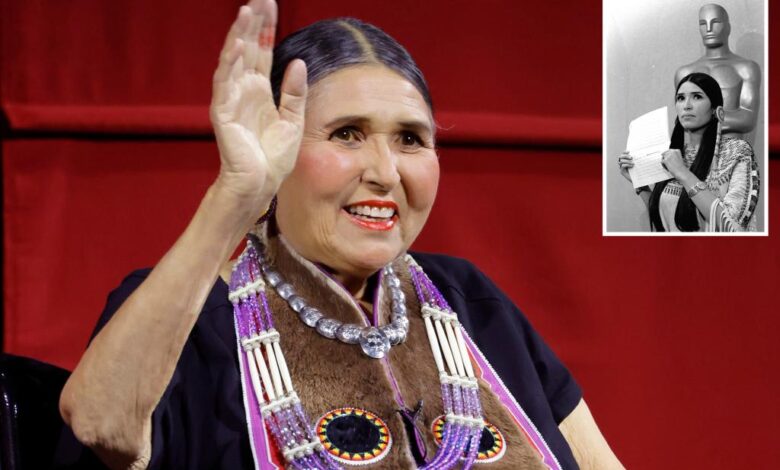Actress Sacheen Littlefeather, who was Native American, died at the age of 75. Littlefeather, a star of multiple films in the ’70s, is perhaps most remembered today for his refusal of Marlon Brando’s Oscar in 1973. She has left behind an example of how to treat Native Americans with dignity in the film business.
The Academy of Motion Pictures tweeted, “Sacheen Littlefeather, Native American civil rights activist who famously denied Marlon Brando’s 1973 Best Actor Academy Award, dies at 75.” With a current photo of Littlefeather and the words, “When I am gone, always be mindful that anytime you stand for the truth, you will be keeping my voice and the voices of our countries and our people alive,” the post went viral. For the time being, I will continue to go by the name Sacheen Littlefeather. Much obliged. There has been no announcement regarding the death’s cause.
Littlefeather was “blacklisted” from Hollywood after making a controversial statement at the 1973 Academy Awards. Littlefeather turned down Brando’s Best Actor Oscar for his role in The Godfather on his behalf. According to Littlefeather, “he really regrets” declining the honour. And the reasons for this include the current state of Hollywood’s portrayal of Native Americans in both new films and reruns, as well as the recent events at Wounded Knee.
Earlier last year, Littlefeather exposed the fallout from her political stance in the documentary Sacheen: Breaking the Silence. “No one has ever before used the Oscars to make a political statement. Marlon decided to attend this particular Oscars since it was the first to be shown live across the world through satellite. Littlefeather explained, “Marlon advised me to wear my buckskin because I didn’t bring an evening dress.” She continued by saying that John Wayne was “in the wings [wanting] to storm onto the platform and haul [her] off” if the speech continued.
This year has already seen an apology from the Academy of Motion Picture Arts and Sciences. In June of this year, Littlefeather received a “statement of reconciliation” in recognition of the “powerful statement” she gave in “recognition of the misrepresentation and mistreatment of Native American people by the film industry” and an apology for the “unwarranted and unjustified abuse” she endured as a result. The Academy went on to say that they will do all it took to make sure that “indigenous voices—the original storytellers—are visible, recognised contributors to the global cinema industry.”
After hearing the apologies, Concerning the Academy’s apology to him, Littlefeather noted, “We Indians are pretty patient people—only it’s been 50 years!” We must never forget to laugh at the situation. This is how we’ve managed to stay alive all these years. Shoot the Sun Down (1978), Winterhawk (1975), Johnny Firecloud (1975), Freebie and the Bean (1974), The Trial of Billy Jack (1974), The Laughing Policeman (1973), and Counselor at Crime (1972) are only a few of the films in which Littlefeather had an appearance throughout the 1970s (1973). Thanks to her boldness, determination, and patience, Littlefeather will forever be remembered as a leader for Native Americans. A lot of people are praying for Littlefeather’s loved ones right now.

